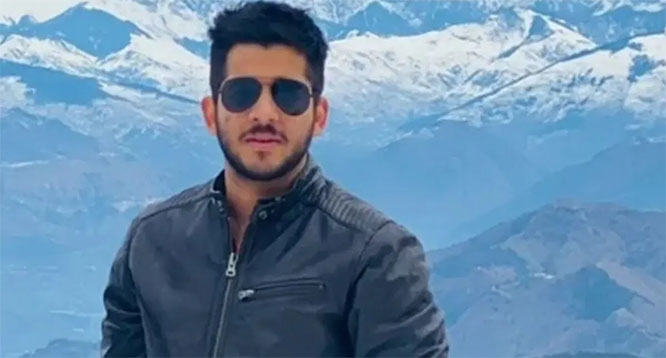Washington, Mar 9: With the Trump administration seriously mulling H-1B visa reforms, at least half a dozen bills have been tabled in the US House of Representatives and the Senate, contending that the programme that is popular among Indian IT firms eats into American jobs.

Even though this argument is disputed by research scholars, economists and Silicon Valley executives, these legislations are based on the premise that Indian techies are eating into American jobs.
In less than a week of Trump being sworn in as the 45th US President, Republican Senator Chuck Grassley, and Assistant Senate Minority Leader Dick Durbin, introduced the "H-1B and L-1 Visa Reform Act" to prioritise American workers and restore fairness in visa programmes for skilled workers.
Grassley is Chairman of the powerful Senate Judiciary Committee. Among other things, the H1-B reform bill proposes to eliminate the lottery system and give foreign students educated in the US priority on visas.
The bill would prohibit companies with more than 50 employees, of which at least half are H-1B or L-1 holders, from hiring additional H-1B employees.
It also explicitly prohibits the replacement of American workers by H-1B or L-1 visa holders. The bill among other things would also crackdown on outsourcing companies that import large numbers of H-1B and L-1 workers for temporary training purposes only to send the workers back to their home countries to do the same job.
Specifically, it would prohibit companies with more than 50 employees of which at least half are H-1B or L-1 holders, from hiring additional H-1B employees, a statement said.
It explicitly prohibits the replacement of American workers by H-1B or L-1 visa holders. These provisions address the types of abuses that have been well-documented in recent press reports.
Democrat Zoe Lofgren -- who represents a Congressional district in California that includes Silicon Valley -- introduced 'The High-Skilled Integrity and Fairness Act of 2017'.
As soon as the bill, which proposes a skill and wage- based system for allocation of H-1B visas and seeks to more than double the minimum wage for an H-1B visa holder to USD 130,000, was introduced, stocks of major Indian information technology went down and rattled the USD 150-billion outsourcing industry.
"It's near-impossible to design an immigration system that selects only the highest-paid and still protects the inventiveness and meritocracy that has made Silicon Valley the centre of the tech world," said Ridhika Batra, US-head of the Federation of Indian Chambers of Commerce and Industries.
"Like all forms of protectionism, these measures by (the) US government would only lower standards and reduce productivity, eventually causing the US to lose the edge -- and the income -- that comes with being the undisputed champion of innovation," she said.
The bill among other things proposes setting aside 20 per cent of the annual allocation of H-1B visas for small and start-up employers with 50 or fewer employees.
Utah Republican Representative Jason Chaffetz, and his party colleague in the Senate Senator Mike Lee, have introduced identical bills in the House and the Senate -- Fairness for High-Skilled Immigrants Act of 2017 -- which proposes to eliminate the per-country immigration caps with a first-come-first-served system.
On February 2, Senator Sherrod Brown joined by Joe Donnelly and Kirsten Gillibrand, introduced the "End Outsourcing Act," which aims to ensure that federal contracts are awarded to companies who hire American workers.
Two Republican Senators Tom Cotton and David Perdue unveiled the Reforming American Immigration for Strong Employment (RAISE) Act on February 7, which proposes to lower overall immigration to 637,960 in its first year and to 539,958 by its tenth year -- a 50 per cent reduction from the 1,051,031 immigrants who arrived in 2015.
Cotton and Perdue met Trump at the White House on Tuesday, after which they said that H-1B and employment-based Green Card is likely to be reformed to attract the best and the brightest from across the world.
The White House yesterday said the Trump Administration has a natural desire to have a comprehensive look at the H-1B, spousal visa and students visas. Last week, Indian-American Congressman Ro Khanna joined a bipartisan group of three other lawmakers to table a legislation to reform the current H-1B and L1 work visas and end its abuse by foreign companies.
The bill, if passed by both the House and the Senate and signed into law by the US President, would require employers to make a good faith effort to recruit and hire American workers before bringing in foreign workers.
It also prohibits employers from replacing American workers with H-1B and L-1 workers or giving preference to H-1B visa holders when they are filling open positions. It will modify existing H-1B wage requirements, and establishes wage requirements for L-1 workers.
The bill proposes to prohibit employers from outsourcing H-1B and L-1 visa holders to other sites unless the employer obtains a waiver which is available only in limited circumstances when the rights of American workers are protected.
Congressional experts note that it might not be easy to pass a bill on H-1B visas unless there is a consensus or broader agreement on comprehensive immigration reform.
Batra said it is important to deal carefully the underlying shortage of STEM-skilled workers. According to a latest Brookings study by 2020, demand for skilled technologists will exceed the number of qualified applicants by 1 million, leaving USA vulnerable in key areas such as technological innovation, economic development and cybersecurity.
"Moving the allocation decision from an arbitrary process to a market-clearing auction should settle the debate over our economy's demand for skilled immigrant labour, and an incremental success in our highly controversial immigration debate might help break the immigration reform impasse in other areas, as well," Batra said.






Comments
Add new comment